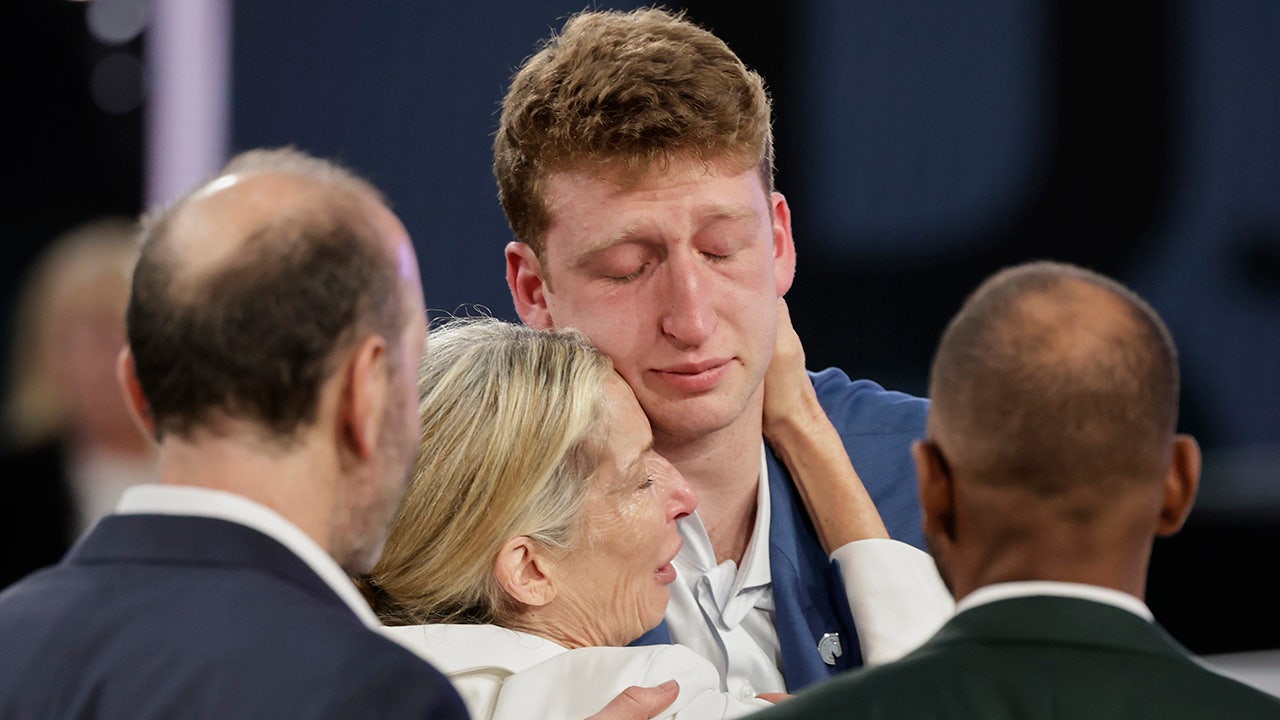
The Trump administration wants to cut programmes that deal with war crimes and accountability in Ukraine, among other conflict areas.
Maxym Marusenko/NurPhoto via Getty Images
- The White House intends shutting down funding for programmes that do war crimes and accountability work globally.
- The US State Department can appeal the decision.
- The deadline for responses is 11 July.
The White House has recommended terminating US funding for nearly two dozen programmes that conduct war crimes and accountability work globally, including in Myanmar, Syria and on alleged Russian atrocities in Ukraine, according to three US sources familiar with the matter and internal government documents reviewed by Reuters.
The recommendation from the Office of Management and Budget, which was made on Wednesday and has not been previously reported, is not the final decision to end the programmes since it gives the State Department the option to appeal.
But it sets up a potential back-and-forth between the OMB and US Secretary of State Marco Rubio and his aides, who will reply to OMB with their suggestions on which programmes deserve to continue.
The programmes also include work in Iraq, Nepal, Sri Lanka, Colombia, Belarus, Sudan, South Sudan, Afghanistan and the Gambia, according to the sources and a list seen by Reuters.
The State Department declined to comment. OMB did not immediately respond to a request for comment. The expectation that Rubio would argue for many of the programmes to be continued is slim, according to three US officials.
READ | Hints of MAGA breakup after Trump ordered US strikes on Iran
However, the top US diplomat could make a case to keep crucial programmes, such as aiding potential war crimes prosecutions in Ukraine, according to one source familiar with the matter.

US Secretary of State Marco Rubio sent a cable to all US diplomatic missions.
Several of the programmes earmarked for termination operate war crimes accountability projects in Ukraine, three sources familiar with the matter said, including Global Rights Compliance, which is helping to collect evidence of war crimes and crimes against humanity across Ukraine, such as sexual violence and torture.
Another is Legal Action Worldwide, a legal aid group which supports local efforts to bring cases against Russian suspects of war crimes in Ukraine, the sources said.
Requests seeking comment from the groups were not immediately answered.
State Department bureaus that would like to preserve any war crimes and accountability programmes should send their justifications by close of business day on 11 July, said an internal State Department email seen by Reuters.
READ | ‘Essential hedge against authoritarianism’: Judge blocks Trump plan to target Harvard students
Many of the programmes recommended for termination are dedicated to empowering local organisations seeking to advance justice in societies that have faced atrocities, one of the sources said, adding that some programmes have been going on for decades across Democratic and Republican administrations.
“Even if Secretary Rubio intervenes to save these programmes, many of which he supported as a senator, there will be no one left to manage these programmes,” the source said.
The administration of US President Donald Trump has frozen and then cut back billions of dollars of foreign aid since taking office on 20 January to ensure American-taxpayer money funds programmes that are aligned with his “America First” policies.

US President Donald Trump listens to NATO General Secretary Mark Rutte during a North Atlantic Council plenary meeting at the NATO Summit in The Hague, Netherlands.
Kin Cheung/Pool/Getty Images
The unprecedented cutbacks have effectively shut down its premier aid arm US Agency for International Development, jeopardised the delivery of life-saving food and medical aid and thrown global humanitarian relief operations into chaos.
The OMB recommendation is yet another sign that the administration is increasingly de-prioritising advocacy for human rights and rule of law globally, an objective that previous US administrations have pursued.
While US foreign aid freezes had already started hampering an international effort to hold Russia responsible for alleged war crimes in Ukraine, Wednesday’s recommendations raise the risk of US completely abandoning those efforts.
Among the programmes that are recommended for termination is a $18 million State Department grant for Ukraine’s Prosecutor General’s Office that is implemented by Georgetown University’s International Criminal Justice Initiative, two sources said.
An official at Georgetown declined to comment.
While the programmes do not directly impact Ukraine’s frontline efforts to fend off Russia’s invasion, supporters say they represent the best chance of extensively documenting reported battlefield atrocities in Europe’s biggest conflict since World War Two, now grinding toward a fourth year.

Residents stand near a damaged office building in the Solomianskyi district following a Russian airstrike.
Aleksandr Gusev/SOPA Images/LightRocket via Getty Images
Ukraine has opened more than 140 000 war crime cases since Moscow’s February 2022 invasion, which has killed tens of thousands, ravaged vast swathes of the country and left behind mental and physical scars from occupation.
Russia consistently denies war crimes have been committed by its forces in the conflict.
Other programmes include one that does accountability work on Myanmar army’s atrocities against Rohingya minorities as well as on the persecution of Christians and other minorities by Syria’s ousted former president Bashar al-Assad, two sources said.
While the OMB recommendations could face State Department push-back, the criteria to appeal are set very strictly.
In an internal State Department email, the administration cautioned that any effort to preserve programmes that were recommended to be terminated should be thoroughly argued and directly aligned with Washington’s priorities.
“Bureaus must clearly and succinctly identify direct alignment to administration priorities,” the email, reviewed by Reuters said.
.png)
 German (DE)
German (DE)  English (US)
English (US)  Spanish (ES)
Spanish (ES)  French (FR)
French (FR)  Hindi (IN)
Hindi (IN)  Italian (IT)
Italian (IT)  Russian (RU)
Russian (RU) 








Comments